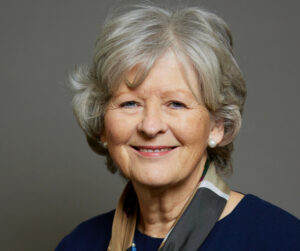
The government has rejected an expert panel’s proposal to “severely curtail” the “inhumane” solitary confinement of people with learning disabilities and autistic people in mental health hospitals.
In a damning report published last week, psychiatrist and learning disability expert Baroness Sheila Hollins said there was “no therapeutic benefit” to the long-term segregation of people detained under the Mental Health Act 1983 in hospital.
Hollins and a panel of experts called for the introduction of rules to radically reduce and time limit its use for autistic adults and those with learning disabilities and ban it for children, in a review commissioned by the Department of Health and Social Care (DHSC).
Key proposal rejected by DHSC
However, despite accepting the need to significantly reduce the use of long-term segregation, the DHSC rejected the panel’s key proposal on the grounds that it was undeliverable under the current MHA code of practice, which permitted the practice.
And while it did not rule out amending the code along the panel’s proposed lines when it was next reviewed, it made no commitment to any such review.
The response, which was described as “insulting” and “disheartening” by campaign groups, came a day after the DHSC was also heavily criticised for ditching its planned reform of the MHA.
MHA reform ditched by Tories, but pledged by Labour
This would have likely reduced the number of detained autistic people and people with learning disabilities – who currently number about 2,000 – by preventing people from being sectioned for treatment on the basis of those conditions alone.
Labour, which is widely tipped to win the next election, due by January 2025, pledged this week to introduce legislation to reform the MHA in its first year in power.
The DHSC appointed Hollins in 2019 to chair a panel to oversee independent care (education) and treatment reviews (IC(E)TRs) of detained autistic people and people with learning disabilities in long-term segregation.
IC(E)TRs, which are independently chaired and include experts by experience, are designed to examine the safety and quality of people’s care, and how they can be moved to less restrictive settings or discharged. The panel’s work covered the 191 reviews carried out, in two phases, from November 2019 to March 2023.
‘No therapeutic benefit’ to segregation
In her reports, Hollins said the panel drew five conclusions from reviewing the IC(E)TRs:
- There was no therapeutic benefit to long-term segregation and other forms of enforced isolation, such as shorter-term seclusion. This was a ” a restrictive practice used for containment”, which was “invariably harmful, leading to far-reaching difficulties in any rehabilitation from the confinement.
- Patients were suffering further harm from the use of psychotropic medication without therapeutic intention and the inappropriate use of other restrictive practices, such as physical interventions.
- Contributing to the lack of therapeutic benefit was the fact that autism or learning disability were seen as sufficient reasons for detention without staff interrogating why the person was in crisis.
- Trauma was usually the root cause of admission to hospital and subsequent confinement, but people were then being further traumatised by inappropriate hospital environments that did not provide for their sensory and communication needs.
- Families and friends were too often denied access to their loved-one and excluded from treatment and care decisions.
Panel members were unanimous that all types of enforced isolation should be renamed “solitary confinement”, a deliberately emotive term designed to challenge the “complacency” of current practice.
‘Confinement should end for children’
Members also agreed that its use should be “severely curtailed” for adults with autism or learning disabilities, and ended altogether with immediate effect for children and young people,
The panel’s key recommendation to bring this about was to make solitary confinement an NHS England “never event” for under-18s, and also for adults where it lasts more than 15 days or not in line with minimum standards put forward by the panel, said Hollins. Never events are wholly preventable serious incidents whose occurrence prompts an investigation.
The proposed minimum standards stipulate that people in solitary confinement should have access to social contact, activities and outdoor space, be placed in safe, dignified, well-maintained, calm and homely accommodation and receive trauma-informed care and treatment.
In her report, Hollins said the standards should be incorporated into an amended MHA code of practice as soon as possible.
No reduction in numbers segregated
She reported that, of 114 people who received an IC(E)TR in their second phase (2021-23), 48 had left long-term segregation, including seven who had been discharged from hospital.
However, in a letter to then health and social care secretary Steve Barclay in July, Hollins said that about 115 remained in segregation “as it appears that when someone is discharged, another person moves into their space in long-term segregation”.
In her main report, Hollins highlighted initiatives commissioned by NHS England that had improved practice and reduced restrictions on people, including:
- The senior intervenors pilot, in which a senior person was appointed for 17 people for whom progress was not being made in reducing restrictions, to work with services to facilitate discharge.
- The HOPE(S) model, which trains services in delivering trauma-informed and person-centred support designed to improve people’s experiences, reduce lengths of stay in hospital and support discharge.
However, she raised concerns about the time-limited nature of resourcing of them. The senior intervenors programme was funded up to March 2023 while funding for the HOPE(s) model is currently only guaranteed until 2024.
‘My heart breaks’ – panel chair

Baroness Sheila Hollins (photo: Roger Harris Photography)
“My heart breaks that after such a long period of work, the care and outcomes for people with a learning disability and autistic people are still so poor, and the very initiatives which are improving their situations are yet to secure the essential funding required to continue this important work,” she concluded.
In a letter to Hollins responding to her report, mental health minister Maria Caulfield said: “I am appalled by the poor and unacceptable outcomes that were found for a number of people. I agree with your finding that the IC(E)TR programme has highlighted that [long-term segregation] is being overused and we have seen that when people are discharged from [long-term segregation] all too often someone else takes their place.”
However, in response to the panel’s key recommendation, the DHSC said long-term segregation could not be classed as a “never event” because it was permissible under the MHA code of practice.
No commitment on reform
“Therefore, we do not feel this would be the best way of achieving a reduction in the use of long-term segregation in the short term under the current legislative framework,” it added.
The department said that, were changes to be made to minimum standards for long-term segregation under the MHA code of practice in future, it would “consider whether there are further actions we can take to include scenarios where long-term segregation is used that falls below the minimum standards as ‘never events’”.
However, it made no commitment on when the MHA code of practice would be reviewed – despite Hollins saying her proposed changes needed to happen urgently.
Following her report, Hollins asked junior work and pensions minister Viscount Younger in the House of Lords if the government would commit to revising the code of practice but did not receive a response.
CQC tasked with leading segregation reviews
In response to the panel’s call for further funding for interventions to reduce the use of segregation, the DHSC said it had asked the Care Quality Commission to deliver IC(E)TRs for the next two years.
It did not commit to further funding for the senior intervenor and HOPE(S) schemes, saying the former was being evaluated and the latter would be on expiry of its funding next year.
The DHSC’s position drew an angry response from campaign groups whose staff served on the panel.
‘Disheartening’ and ‘insulting’ response
“The Department for Health and Social Care’s response is disheartening, particularly the refusal to include solitary confinement of people with learning disabilities and autistic people within NHS England’s never event policy,” said the Restraint Reduction Network (RRN).
The RRN works to eliminate the use of unnecessary restrictive practices in health and social care and its manager, Alexis Quinn, who is also an expert by experience, served on the panel.
Calling for the DHSC to review its response, the RRN added: “We are in a position where the lack of robust, human-rights informed guidance on solitary confinement, combined with a lack of changes to the outdated Mental Health Act mean there will continue to be unacceptable inequalities in mental health provision and a continued lack of sufficient protection for the rights of people with disabilities.”
The response was described as “insulting” by autism and learning disability rights group Rightful Lives, three of whose administrators, Alicia Wood, Julie Newcombe and Quinn, served on the panel.
“Solitary confinement is toxic, inhuman and degrading and frequently in breach of international and domestic law and guidance,” it said. “There is little or no accountability when services fail people. Quite frankly, we are furious that, with more people than ever subject to enforced isolation, the government doesn’t appear to be in the least bit invested in doing what works.”



 Assistive technology and dementia: practice tips
Assistive technology and dementia: practice tips  A trauma-informed approach to social work: practice tips
A trauma-informed approach to social work: practice tips 




 Find out how to develop your emotional resilience with our free downloadable guide
Find out how to develop your emotional resilience with our free downloadable guide  Develop your social work career with Community Care’s Careers and Training Guide
Develop your social work career with Community Care’s Careers and Training Guide  ‘Dear Sajid Javid: please end the inappropriate detention of autistic people and those with learning disabilities’
‘Dear Sajid Javid: please end the inappropriate detention of autistic people and those with learning disabilities’ Ofsted calls for power to scrutinise children’s home groups
Ofsted calls for power to scrutinise children’s home groups Seven in eight commissioners paying below ‘minimum rate for home care’
Seven in eight commissioners paying below ‘minimum rate for home care’
 Facebook
Facebook X
X LinkedIn
LinkedIn Instagram
Instagram
How appalling that this measure of solitary confinement and segregation that does no good and in fact only damages people can be allowed to continue because it is not explicitly agianst the law or code of practice! The Government is not going to move towards any sort of correction of this although they are able to do so with indecent haste over their riduculous plan of sending refugees to Rwanda. There are things which could be done, however. CQC could decide to make this something they look at and condemn when inspecting and no Local Authority or individual should agree to fund a placement where this practice goes on.
I’m not sure this judgement holds up Ruth. My reading of the law says, ‘any restrictions in movement that cumulatively exceed 72hrs in a 28day period’ is a fundamental breach of liberty and most be signed off by the Secretary of State. It’s etched in my mind as I was the IRO pressing the issues. Yvette Cooper MP should remember the details because the local Unison branch baulked against the impact on staff.
creating the conditions that cause harm is, in the law of tort, a highly litigious area; and where a contract for services directly interferes with (i) the rights of the child to go to Court and/or (ii) undermines the satisfaction of social policy and (iii) is driven by service level contractual obligations outside the scope of the responsible commissioner ratherthan the Care Plan for the child ~ all contracting is null and void.
the same applies for adults although the issues of liabilities falling from the duty of care are more ambiguously constructed.
Trauma informed approaches, and especially when there’s co-occurrance with adhd/autism/disassociative conditions is wholly dependent on addressing systemic invalidation as well ~ and especially misogyny.
This is about the nuanced nature of how trauma manifests bodily and impacts executive brain function, compounding sometimes exaggerating an underlying, equally nuanced and overlapped condition, like anxiety and depression, adhd/autism/disassociative conditions, like bpd/eupd. Or, as can be the case non-of-the above.
The lack of oversight requires, say, within an encapsulatory diagnostic protocol, with treatment options facilitating trauma recovery as a first resort, lessening the reduction and emasculatory lumping together of ‘everything’ as .
It’s almost twenty years since the, then, Government freed up capital spend for the development of the low-medium secure psychiatric estate ~ and while the numbers of patient deaths within this patient group is staggering high the diagnostic protocol for detention, it would seem, has deteriorated.
Very few people know that bpd as a diagnostic category first emerged in the early 1990’s. Championed, in the US, by psychotherapists challenging the diagnosis of schizophrenia amongst a largely ie 3:1 female patient group displaying largely behavioural management problems.
The key insight lay from the study of the transference and countertransference between doctor and patient ~ patients who had been victims of sexual violence, often in childhood became the basis for an examination of the dynamics making bpd a separated category of mental disorder and includes an awareness of systemic invalidation emasculated by a diagnosis of schizophrenia.
The treatment of bpd was best achieved through cooperation and to day-hospital care ratherthan full in-patient detention.
Work I was involved in decades ago used, under the watch of the MHAC, guardianship orders, and when ASW’s were permitted, sought out alternatives to detention in hospital, in one instance this included adult respite with a adult foster family.
The treatment and control of psychosis amongst women patients has been a sore point for decades. It’s highly specialised work ~ the diagnostic splitting from schizophrenia heralded the start of trauma-informed approaches ~ being trauma informed means helping the patient build up their tolerances through a whole range of grounding and stabilisation techniques, and crucially being positively involved with their bodies through exercise or outdoor activities. Not the removal of their liberties through control and confinement ~ my memory of the MHA Code of Guidance suggests that such interventions are to be treated as systemic in all and every instance.
Again, from memory the words, ‘any restrictions in movement exceeding 72hrs in a 28 day period are to be treated as a fundamental breach of liberties and require the approval of the Secretary of State’ are etched on.
Nobody’s saying that the work is easy ~ I know it isn’t. But really wtf is going on?
For CPD see Dr Megan Ann Heff http://www.neurodivergentinsights.com ~ Dr Heff, usefully provides detailed information about concurring conditions ~ it’s definitely worth a visit to her site.
Just In
I have been invited to this and other issues, alongside those directly impacted, at the York City Council, Health and Well-being Board on the 22.11.23.
What are you doing?
I only ever found blatant abuse, for my girl, Schools, Community Living Teams, ATUs Care homes, and Private hospitals brought her close to death! shame on the Government of UK.
ask to speak at a meeting of your local council, the Council will tell you which meeting is covering the issues; you get 3mins, or you do here, tell them your truth … it’s, at the very least, officially recorded and you’ll be surprised about how many others will share your concerns.